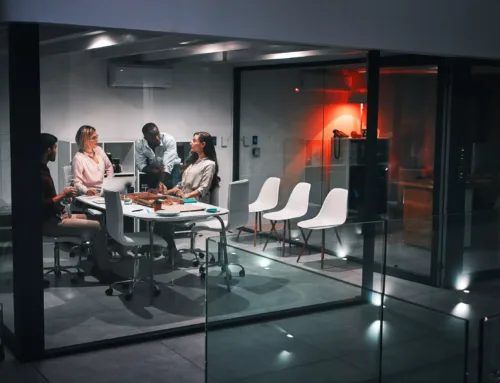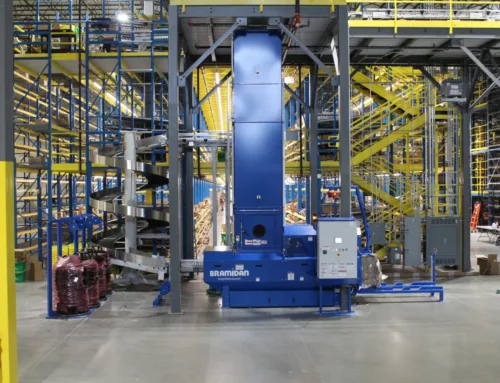
In an era where operational efficiency and environmental sustainability are no longer optional, businesses must find innovative ways to manage their surplus inventory. The concept of sustainable liquidation is quickly becoming a strategic tool for companies looking to increase profitability while aligning with global sustainability goals.
At End2End Logix, we provide tailored solutions that convert excess inventory, outdated equipment, and returned goods into measurable value. Our approach goes beyond basic liquidation—it’s designed to deliver financial returns, operational efficiency, and environmental responsibility.
If your organization is currently sitting on unsold inventory, idle assets, or overstock, sustainable liquidation could be your competitive edge.
What Is Sustainable Liquidation?
Sustainable liquidation is the process of recovering value from surplus assets through environmentally responsible methods. It involves reselling, donating, recycling, or repurposing inventory instead of sending it to landfills. The goal is twofold: recover profit and minimize waste.
Unlike traditional liquidation, which often prioritizes fast clearance with little regard for environmental or brand impact, sustainable liquidation takes a strategic and ethical approach. It helps companies optimize financial outcomes while supporting circular economy practices.
At its core, sustainable liquidation combines logistics, resale strategy, compliance, and environmental stewardship—areas where End2End Logix specializes.
Why Surplus Inventory Is a Growing Challenge
Surplus inventory is a universal business issue. Even the most sophisticated supply chain models can’t always predict market shifts, consumer behavior, or global disruptions. As a result, businesses regularly accumulate excess products, outdated goods, and equipment they no longer use.
This surplus often includes:
-
Customer returns
-
Seasonal merchandise
-
Discontinued or obsolete SKUs
-
Cancelled orders
-
Overstock from inaccurate forecasting
-
Outdated or unused machinery
When not addressed properly, these idle assets can tie up warehouse space, restrict cash flow, and quietly erode profitability. More critically, improper disposal—such as dumping products or sending them to landfills—can damage your brand reputation and violate growing environmental compliance regulations.
End2End Logix offers a smarter alternative. By leveraging our sustainable liquidation services, you can shift surplus from a liability into an asset—and position your company as a forward-thinking industry leader.
How End2End Logix Delivers Smart, Sustainable Liquidation

Our approach is designed to align financial returns with ESG (Environmental, Social, and Governance) goals. Here’s how we support our clients:
Asset Evaluation and Categorization
We start with a detailed audit of your surplus assets. Each item is assessed for resale value, donation potential, recyclability, and compliance considerations. This ensures the right liquidation method is matched to the right asset category.
Custom Liquidation Plans
We develop a liquidation strategy that supports your business objectives—whether that’s maximizing recovery value, minimizing holding costs, or enhancing ESG reporting. We factor in brand protection, channel control, and timeline sensitivity.
Full-Service Logistics Management
We manage all logistics, from pick-up and packaging to transportation and delivery. Our infrastructure is built to minimize disruption to your operations and maximize efficiency in execution.
Brand-Safe Channel Control
Surplus liquidation often poses brand risk if goods end up in uncontrolled or gray markets. We ensure that all resale and redistribution is handled through secure and vetted channels to preserve your brand equity.
Environmental Reporting and Compliance Support
Our process includes detailed metrics on how much waste was diverted from landfills, the carbon footprint reduction, and material recovery. This helps companies validate and report on sustainability initiatives to stakeholders, customers, and regulators.
The Business Case for Sustainable Liquidation
Sustainable liquidation isn’t just a responsible choice—it’s a profitable one. Businesses that adopt this approach often see benefits that go far beyond the bottom line.
Revenue Recovery from Non-Performing Assets
By liquidating through sustainable methods, companies can reclaim value from goods that would otherwise depreciate or be discarded. Even low-demand products may have value in secondary markets, emerging regions, or specific industries.
Warehouse Optimization
Clearing out obsolete stock frees up storage capacity, reduces inventory holding costs, and improves operational efficiency.
Compliance with ESG and Sustainability Standards
As environmental regulations tighten, businesses need to demonstrate sustainable practices. Liquidation that reduces landfill usage and recycles materials supports regulatory compliance and appeals to environmentally conscious investors.
Enhanced Brand Reputation
Brands that integrate sustainability into their supply chain practices gain loyalty from customers, employees, and partners. Demonstrating responsible liquidation practices shows your commitment to ethical and environmentally sound operations.
Data-Driven Decision Making
With End2End Logix’s comprehensive reporting, businesses can identify patterns in surplus generation and make data-backed improvements to procurement, production, and demand forecasting.
Industries That Benefit from Sustainable Liquidation
Retail and E-Commerce
With high return rates, shifting trends, and seasonal inventory, these businesses often deal with constant surplus. Sustainable liquidation helps them move goods quickly and responsibly.
Manufacturing
Overruns, obsolete equipment, and outdated components can accumulate over time. We help manufacturers turn those into resale or recycling opportunities.
Technology and Electronics
As tech products evolve, older versions need to be phased out. Our secure, certified recycling and liquidation solutions ensure responsible disposal and potential asset recovery.
Logistics and Warehousing
Third-party logistics providers often manage surplus on behalf of clients. We offer scalable programs that align with contractual obligations and storage optimization.
Healthcare and Pharmaceuticals
With strict regulatory requirements around expiration and storage, excess medical supplies and equipment must be disposed of properly. Our compliance-oriented model ensures both safety and sustainability.
Sustainable Liquidation and the Circular Economy
One of the most important trends in global commerce is the shift toward a circular economy—an economic model focused on reuse, refurbishment, and recycling. Sustainable liquidation directly supports this model by extending the life of products and materials.
Rather than treating surplus goods as waste, End2End Logix helps businesses:
-
Reintroduce items into new markets or user groups
-
Break down and recycle materials responsibly
-
Donate usable items to nonprofits or public sector needs
This model reduces demand for new raw materials, lowers overall emissions, and positions companies as active participants in global sustainability efforts.
Long-Term Value of Partnering with End2End Logix
Choosing a liquidation partner isn’t just a logistics decision—it’s a strategic one. End2End Logix works with businesses to deliver results that span departments: supply chain, finance, ESG, operations, and marketing. We bring decades of expertise in logistics, resale networks, compliance, and sustainability practices.
What makes us different is our focus on total asset recovery through environmentally conscious methods. From the warehouse floor to the balance sheet, we help your business unlock new value streams without compromising environmental integrity or operational agility.
Final Thoughts: Sustainability and Profit Aren’t Mutually Exclusive
Many businesses still view liquidation as a loss. But with the right approach and partner, it becomes a tool for transformation—one that increases profitability, reduces environmental impact, and boosts operational efficiency.
As regulations evolve and consumer expectations shift,, sustainable liquidation is not just a trend. It’s a smart, scalable, and future-ready strategy.
FAQs: Sustainable Liquidation & Surplus Inventory Management
1. What types of surplus items are least likely to be accepted for sustainable liquidation?
While many products can be liquidated sustainably, items with significant damage, biohazard risks, expired consumables (especially in food and pharmaceuticals), or products with unresolved intellectual property issues are generally not accepted. However, some components of these items may still be recyclable or repurposed under special conditions.
2. How does sustainable liquidation impact corporate tax planning?
Sustainable liquidation can offer tax advantages when assets are donated to qualified organizations or written off as part of loss recovery. Businesses may also benefit from depreciation recovery and reduced tax obligations through structured asset disposition. It’s advisable to consult with a tax professional to align liquidation strategy with financial planning.
3. Can sustainable liquidation be integrated into an existing reverse logistics system?
Yes. End2End Logix can seamlessly integrate sustainable liquidation practices into existing reverse logistics workflows. This ensures returns, excess stock, or failed deliveries are routed into a profitable and environmentally responsible channel without disrupting daily operations.
4. What role does AI or technology play in sustainable liquidation?
Technology plays a significant role in forecasting surplus, identifying resale opportunities, and managing the liquidation lifecycle. End2End Logix uses data-driven tools to assess item value, match products with the right channels, and optimize transportation routes to reduce environmental impact.
5. How often should a business audit its surplus inventory for liquidation potential?
Conducting surplus audits quarterly or bi-annually is recommended to prevent inventory from becoming obsolete. Regular reviews allow businesses to act before depreciation accelerates or disposal costs rise. Proactive audits also support better forecasting and inventory control.
6. Is sustainable liquidation suitable for small businesses or startups?
Absolutely. Sustainable liquidation is scalable and can benefit businesses of all sizes. For small businesses or startups with limited storage or capital, converting unsold goods or idle assets into revenue can free up space, improve cash flow, and support sustainability commitments from day one.
Share This Story, Choose Your Platform!
Get In Touch
Phone: (847) 722-6942
Email: sales@end2endlogix.com
Web: end2endlogix.com


